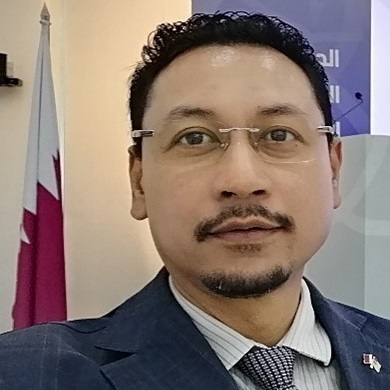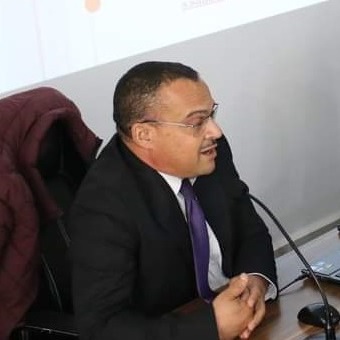2024 Invited Speakers

Dr. NUR FADILAH AB AZIZ
Universiti Tenaga Nasional (UNITEN), Malaysia
Research Areas: power system analysis, electric vehicle, and machine learning application in power system
Biography: Dr. NUR FADILAH AB AZIZ received the Master of Engineering degree (1st class Hons.) in Electrical Engineering from University of Southampton, UK in 2006 and Ph. D. degree from Universiti Teknologi Mara, Shah Alam in 2014. She is a member of Board of Engineers Malaysia (BEM) and IEEE since 2008 and has served as the Executive Committee in IEEE Power Energy Society (PES) Malaysia Chapter since 2021. She is currently at the Department of Electrical and Electronics Engineering, at Universiti Tenaga Nasional (UNITEN), Malaysia as the Head of Programme of Board of Engineers Malaysia Graduate Assessment Programme (BEM-GAP). She was the recipient of Teaching Excellence Award 2022 and Highest Number of Publication 2018 at College of Engineering, UNITEN. She has served as the External Examiner for several universities in Malaysia and she is also the Editorial Board Members for IEEE Access, Smart Grids (Frontiers in Energy Research), and Journal of Electrical & Electronic Systems Research. As a researcher, she has successfully led and completed several research grants in engineering focusing mainly on power system analysis, electric vehicle, and machine learning application in power system. She has published more than 60 publications in international journals and conferences, two books and several chapters in edited books. She has also co-authored several technical manuals for Tenaga Nasional Berhad (Malaysia’s electric utility company) which are “A Guide For Distribution Protection Setting & Coordination”, and “Testing & Commissioning Guidelines for Distribution Substation”. She is also active in industry-based research. She has involved with several research and industry projects and supervised several graduated PhD and Master students. Her research interest includes power system analysis and resilience, renewable energy, fault identification and location, statistical pattern recognition, Artificial Intelligent (AI) and machine learning application in power system.
Title: Geomagnetic Induced Currents: A Hidden Risk for Power Networks
For many decades, Geomagnetically Induced Current (GIC) has posed a significant risk over the electrical power grid infrastructures worldwide. The phenomenon occurs due to geomagnetic disturbance (GMD) and related space weather events arising from solar activity. It represents a potential hazard to the secure and safe operation of electrical power grids by causing half-cycle saturation of grounded High Voltage (HV) power transformers, relay misoperation, and increased reactive power demand in the power systems. Many power grid operators in various countries worldwide have begun to study and perform GIC measurements and many mitigation techniques have been proposed to mitigate its effects on the power grid infrastructures. Previous studies have shown that the occurrence of intense GIC is not limited to high and mid-latitude regions, but powerful space weather events can also result in intense GIC in power systems located in lower geographic latitudes. This talk will explore the potential impacts of GICs on power network, analyzing key vulnerabilities and risks. Using a combination of geomagnetic data and power grid simulations, this study evaluates the susceptibility of the power grid to GICs and discusses mitigation strategies to enhance the resilience of the power infrastructure. The findings contribute to understanding GICs in tropical regions and offer insights into protecting the integrity of the grid from space weather events.

Dr. Hamed H. Aly
Dalhousie University, Canada
Research Areas: micro grids, smart grid, distributed generation, power quality issues, applications of artificial intelligence in power systems, energy management, green energy, and optimization
Biography: Hamed H. Aly (S’09-M’12-SM’16) received the B.Eng. and MASc degrees in electrical engineering with distinction, in 1999 and 2005, respectively, from Zagazig University, Egypt, and the Ph.D. degree from Dalhousie University, Canada, in 2012. He worked as a postdoctoral research associate for one year and as an instructor for three years at Dalhousie University. He worked at Acadia University as an assistant professor for three years. Dr. Aly is currently working as an assistant professor at Dalhousie University and is the founder for Smart Grid and Green Power Research Laboratory. His research interests include micro grids, smart grid, distributed generation, power quality issues, applications of artificial intelligence in power systems, energy management, green energy, and optimization.
Title: Smart Grid Technologies and Renewables Integration
Challenges associated with climate changes motivate using renewable energy resources (RERs). The development of renewables generation, energy storage, and electric vehicles (EVs) are among the critical stages toward cleaner and more efficient power generation. Coordination and scheduling between RERs and the main grid are playing a crucial role for renewables integration as RERs are intermittent and uncontrollable and this presents several challenges like quality issues (stability of voltage and frequency), grid regulations, and inertia problems. For electricity companies and independent system operators (ISOs), it is important to ensure steady supply within a range, which is challenging in case of RERs due to its stochastic (uncertainty and variability). Due to nonlinearity, and fluctuation of RERs; prediction, control and management are very important factors to deal with renewables. Incorporating prediction model of intermittent resources in the optimization formulation is an approach which is actively uses the intermittent resources to follow the demand side variations. With the development of ML, there are opportunities to design and implement novel and cutting-edge decision support systems for real-time monitoring and performance optimization of renewables integration into smart grids. Their integration is vital for achieving energy sustainability among all clean energy sources, including wind, solar, and hydropower. This work presents some of the smart grid solutions to overcome renewables fluctuations and climate changes.

Dr.-Ing. Mohd Zamri Che Wanik
HBKU, Qatar
Research Areas: Photovoltaic, Energy Storage and Electric Vehicle
Biography: Dr.-Ing. Mohd Zamri Che Wanik is a Power & Renewable Systems Engineering and Research Specialist. He received his BSc. from the University of Evansville, U.S.A., MEngSc. from the Curtin University of Technology, Australia and Doktor der Ingenieurwissenschaften (equivalent to PhD) from Universität Duisburg-Essen, Germany in 1997, 2002 and 2011 respectively all in Electrical Engineering specialising in Electrical Power System. He was an academic staff at Malaysian National University where he teaches power system subjects and supervised theses. He is acknowledged as an expert and was constantly referred by Tenaga Nasional Berhad (TNB), the largest electric utility company in Malaysia. His works led to the amendment of Malaysia Grid Codes to accommodate large scale solar farm, improvement of Malaysian PV interconnection guidelines to medium voltage grid, pilot demonstration project on distributed generation management in TNB Distribution network, pilot demonstration of Microgrid operation at TNB, Malaysian Electric Vehicle charging infrastructure guidelines, the net metering policy with RE to name a few. Since 2016, he is with Qatar Environment and Energy Research Institute (QEERI) as Scientist/Project Lead – Advanced Power Systems-Smart Grids. At QEERI his R&D activities are focusing on intelligent management of distribution network to facilitate the integration of distributed energy resources such as Photovoltaic, Energy Storage and Electric Vehicle. He has successfully led many R&D, consultancy, pilot and demonstration projects in this domain. He is also frequently invited to give talks, conducting seminars and workshops for academia and industry on topics related to his expertise. He is active in voluntary work within technical society which he is currently a senior member of IEEE, a member of IEEE PES, and a member of CIGRE.
Title: Active Distribution Network Management with Synchrophasor Technology
The expected increase integration of distributed energy resources (DERs) especial solar PV into distribution system demands higher requirements in reliability, resiliency and power quality from electric user or customer. Active distribution network management is highlighted as a key tool for the efficient and secure integration of high level of distributed generation. Active distribution network management comprises of combine network development and operational solutions, structured and organized information exchange, increased monitoring, simulation, and control via telecommunication. One of the key technology that will enable the active management is phasor measurement unit. This talk in addition to the concept of active management will describe on the PMU technology, its application, and its benefits to distribution networks. The pilot-demonstration project on PMU based monitoring and management currently ongoing at one of the medium voltage level distribution systems in Qatar will be presented. The experience of planning, installing, and commissioning of the system will be shared. The functions and performance of the system will be presented. The R&D activities on this area at Qatar Environment and Energy Research Institute will also be shared with.

Prof. Saadi Slami
Zian Achour University of Djelfa, Algeria
Research Areas: Artificial Intelligence Applied to Signal Processing, Power Systems Quality Optimization, Smart Grids/Smart Cities, Hardware and Software Reconfigurable Implementation, Modern Control and Embedded Electronics
Biography: Pr. Slami SAADI, received his BSc degree in Electrical and Electronics Engineering from INELEC (1993), University of Boumerdes (Algeria) and MSc degree in Signal Processing from the University of Blida (2005). He got his PhD degree from SAAD DAHLAB university of Blida (Algeria) in 2012. His interests include artificial intelligence and meta-heuristics applied to signal processing, power systems quality optimization, smart grids/smart cities, hardware and software reconfigurable implementation, modern control and embedded electronics…etc. He worked as an engineer in industrial instrumentation for more than sixteen years in the Algerian power systems society (CDSE) and published many papers, conference presentations and scientific/text books in his domain. He is, currently, with the Department of Electronics, Faculty of Sciences and Technology, university Zian Achour of Djelfa, Algeria, as a full Professor.
Title: Meta-heuristics for intelligent Power Systems
In this work, we present an optimal reduced order nonlinear dynamic model for proton exchange membrane fuel cell (PEMFC) using the minimization of error between original and reduced order models via (L1, H2, H∞) norms synergy optimized with biogeography based optimization (BBO) Algorithm. The data necessary to form the autoregressive exogenous(ARX) artificial neural network (ANN) model are generated by the simulationof the dynamic model of the nonlinear PEMFC500w differential equations to extract space state matrices values. This approach is compared with Balanced Truncation (BT) model reduction method and illustrated through simulation results.

Dr.Ashraf Mahmud
University of the West of Scotland, UK
Research Areas: Smart Grid, Micro Grids, Power Science, Data Science, Artificial Intelligence, Energy Management, Demand Response Modelling, Internet of Things, Green Energy
Biography: Ashraf Mahmud received a Master of Statistics from Dhaka University, Bangladesh, with first class in 1999, an MSc in Computer Science from the University of East London, UK, in 2006, and a PhD from the University of Bedfordshire, UK, in 2019.
He is currently working as the Data Science Programme Leader at the University of the West of Scotland, where he has been employed since 2022. He is involved with the DELTA research group, a multidisciplinary group that is part of the Artificial Intelligence, Virtual Communications, and Networks (AVCN) Institute at UWS.
Prior to this, he worked 10 years as an IT Manager and Head of Student services in the ICON College, London, UK since 2004. He worked part-time and full-time at the University of Bedfordshire since 2015. He also worked as a postdoctoral research associate at Heriot-Watt University on the UKRI-funded project ReFlex in Orkney in 2019-2020. When the pandemic started, he worked at both the University of Bedfordshire and York St John University. Afterward, he joined the University of Reading, where he worked until July 2022.
His research interests include Smart Grid, Micro Grid, Demand Response Model, Data Science, Artificial Intelligence, Internet of Things, and Computer Networks.
.
Title: Effective Demand Response Modelling in the Smart Power Grid
In the Smart Grid, demand response is a fundamental phenomenon due to the 70% energy wastage in the current power grid. This paper used Long Short-Term Memory (LSTM) and the Autoregressive Integrated Moving Average (ARIMA) models to predict electricity prices. The dataset was sourced from the open-source Victoria state of Australia. The study integrates seasonal energy variations in demand and electricity prices. The forecasting models were implemented and evaluated using three performance metrics: Mean Squared Error (MSE), Mean Absolute Error (MAE), and Root Mean Squared Error (RMSE), where LSTM demonstrated lower error compared to ARIMA. Several challenges were identified during the research, including unexpected negative Regional Reference Price (RRP), model limitations, and unpredictable price variations. In terms of accuracy, statistical models like Simultaneous Perturbation Stochastic Approximation (SPSA) were implemented, revealed significant prediction variations. Statistical model and machine learning approach used in prediction. However, there is potential for improved accuracy by implementing different techniques, such as alternative models, hybrid approaches, and dynamic hyperparameter tuning. This research has implications for future work in enhancing model accuracy, demand response modelling, and Smart Grid optimization.
